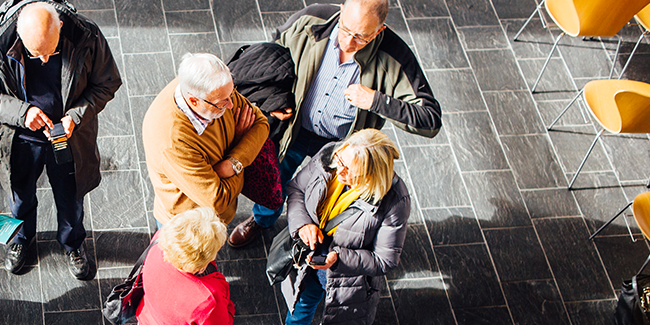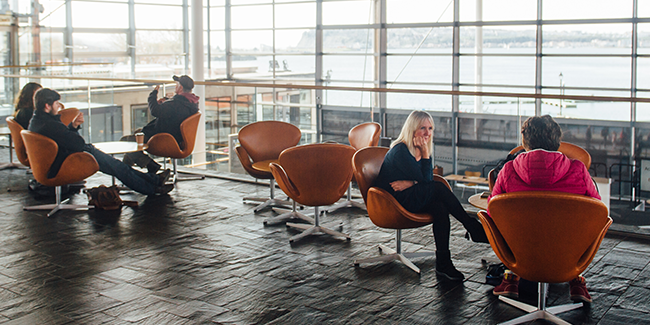In a landmark event, Wales' first Citizens' Assembly will meet on 19-21 July 2019. A key part of the National Assembly's programme to celebrate 20 years of devolution, the project marks a new form of democratic participation.

The 60 citizens taking part are representative of the Welsh population aged 16 and over and were chosen after 10,000 randomly selected households were invited to apply. They will gather in Gregynog Hall in Newtown to discuss 'how can people in Wales shape their future?'.
Participants will hear expert evidence and examine examples of how people in other countries have a say in the democratic process. They will then explore and suggest new ways that citizens might be able to do this through the work of the National Assembly for Wales before making a series of recommendations.
Why have a Citizens' Assembly?
Public engagement is at the heart of the National Assembly for Wales' ways of working. The Assembly aims to involve people across Wales in everything it does and actively looks for new ways to engage with more members of the public. This includes opportunities for the public to hold the Welsh Government and other public bodies to account, contribute to committee inquiries and submit public petitions.
The recommendations made by the Citizens' Assembly will help guide the work of the National Assembly for Wales to ensure the ways it engages with the Welsh public are fit for the next 20 years.
Elin Jones AM, Llywydd of the National Assembly for Wales said:
"The first Citizens' Assembly for Wales is a landmark event and an important step on our devolution journey.
"Public engagement is at the heart of the National Assembly's work. We want people in all parts of Wales to get involved with the democratic process by sharing their views and ideas with us.
"For a democracy to thrive and improve, everyone must be involved. The Citizens' Assembly is a pioneering way in which we can make sure our work is in line with the priorities of people across the country.
"I'm grateful to the participants for giving up their time and I'm looking forward to hearing their views."
Successful citizens' assemblies around the world
Worldwide Citizens' Assemblies are a relatively new form of public participation in the democratic decision-making process – this is the first time one has been established in Wales.
They have been successfully used as practical models for participation in other countries, such as Canada, Australia, the United States, the Netherlands and Poland, and have helped to tackle some important issues.
The recent Citizens' Assembly in Ireland looked at issues including abortion, equal marriage and the opportunities and challenges of an ageing population.
"The first Citizens' Assembly for Wales is a landmark event and an important step on our devolution journey."
- Elin Jones AM, Llywydd of the National Assembly for Wales.

A representative Citizens' Assembly
To ensure the people of Wales are best represented at the Citizens' Assembly, organisers have gone to great lengths to select people who reflect the makeup of the Welsh public.
This includes age; educational level; ethnicity, gender, regional spread, Welsh language skills and voters and non-voters in the 2016 National Assembly for Wales election.
Supported by experts
Expert speakers will present evidence and case studies about citizens engaging in democratic processes and participants will also hear how people currently engage with the work of the National Assembly for Wales. Participants will question speakers and discuss the evidence they hear with one another.
Participants will then work through a series of exercises, involving small group discussions, as well as some voting and ranking of options, in order to come to a set of conclusions.
The speakers include Professor Graham Smith, Professor of Politics and Director of the Centre for the Study of Democracy at the University of Westminster and Dr Huw Pritchard, lecturer in law at Cardiff University and member of the Wales Governance Centre.
In order to ensure independence, the National Assembly invited external expert partners to organise the selection of participants as well as the delivery of the project. Professional facilitators will lead the discussions and their role will be to make sure that all participants are heard and feel comfortable.
The National Assembly Commission will publish the conclusions of the citizens' assembly in a report and will use the conclusions to inform its work. The Commission will respond after considering the report published in September.

